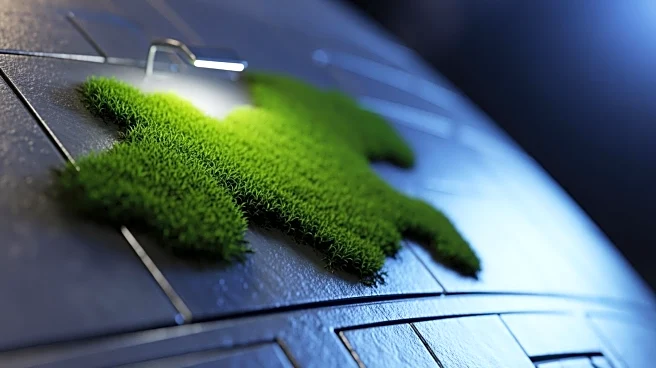What's Happening?
A team of Japanese scientists has discovered that moss spores can survive the harsh conditions of outer space, potentially paving the way for future ecosystems beyond Earth. The experiment involved sending
moss spores to the International Space Station, where they spent 283 days in an exposure chamber outside the vessel. Upon returning to Earth, over 80% of the spores successfully germinated, demonstrating their resilience to extreme temperatures, ultraviolet light, and microgravity. The study, published in the journal iScience, highlights the adaptability of moss, known as bryophytes, which reproduce via spores and thrive in extreme environments like the Arctic and deserts.
Why It's Important?
The findings are significant as they suggest that moss could play a crucial role in developing sustainable ecosystems on other planets, such as the Moon or Mars. Understanding the resilience of Earth-born organisms in space conditions is vital for expanding human habitats beyond Earth. The ability of moss to survive and germinate in space conditions could lead to advancements in planetary greening and life support systems, essential for long-term space missions and colonization efforts. This research enhances our understanding of plant survival in extreme environments, both terrestrial and extraterrestrial.
What's Next?
Future research may focus on further testing the resilience of moss and other organisms in space conditions to develop sustainable life support systems for long-term space missions. Scientists might explore the use of bryophytes in planetary greening projects, potentially aiding in the creation of self-sustaining ecosystems on other planets. Additionally, the study could inspire new experiments to test other Earth-born organisms' adaptability to space environments, contributing to the broader field of astrobiology and space exploration.
Beyond the Headlines
The resilience of moss in space conditions raises ethical and environmental questions about the potential impact of introducing Earth organisms to extraterrestrial environments. While the research offers promising solutions for space colonization, it also necessitates careful consideration of the ecological balance and preservation of native extraterrestrial ecosystems. The study underscores the importance of responsible scientific exploration and the need for international collaboration in space research to ensure sustainable and ethical practices.










